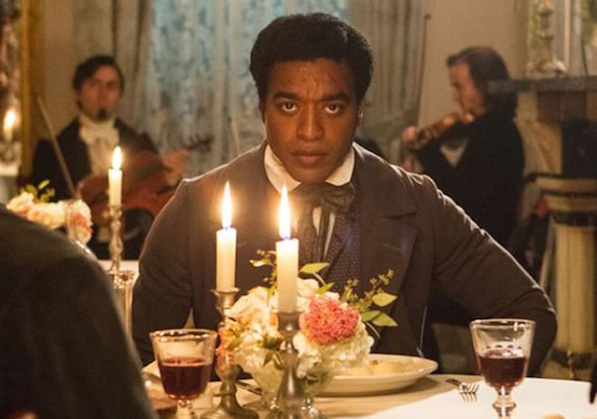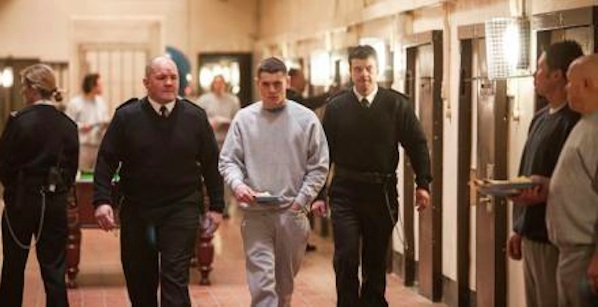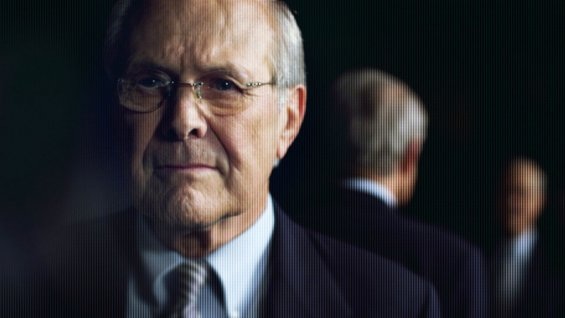On the occasion of its 40th anniversary, Telluride, the venerable film festival tucked away in this remote Colorado mountain village bucked tradition and did the seemingly unthinkable: it expanded. Adding an extra day to its program and a new theater (a 500-seat beauty named in honor of Werner Herzog) to its venues, the festival could be seen as not necessarily outgrowing itself but rather becoming more accommodating. The logic for audiences was that with more time and space to navigate the program (whose slender catalogue fits in a back pocket), the packed houses and epic queues would be diffused to a level more commensurate with a holiday weekend of moviegoing than an arduous pilgrimage to cinephile mecca. Of course there was talk of the festival as having lost some of its rigor on account of breaking one hit too many, and slumming it millionaire style. But leave it to a new film (12 Years a Slave), by the British Steve McQueen—a tale of slavery in the United States with no trace of kitsch, featuring robust performances from actors unfamiliar to the multiplex—to bust all assumptions.
It was Telluride that had not long ago ceremoniously proselytized on behalf of the Turner Prize-winning artist as emerging director, trotting out McQueen for a presentation of the bracing (circa 2008) Hunger, its rawness since mitigated by time and Shame‘s lack of manifest anguish. Were audiences now embracing McQueen at large? Was slavery a subject that American audiences were eager to countenance? “It’s about examining ourselves,” said McQueen at a town symposium with his ensemble cast, “and people may be more ready to examine history.”
“I was fascinated by this story” told McQueen, referring to the true tale of Solomon Northrup’s trial from wealthy, educated free man to plantation servant in the mid-1800s, describing it as “the maze of slavery, through one man.” He also cited John Guare’s 2010 play A Free Man of Color as instrumental to the script: “It was interesting to start that process with language. The whole film for me was like a Grimm’s fairy tale.” Both McQueen and stalwart collaborator Michael Fassbender elaborated on the virtues of duration and the necessity of long takes. “Holding the shot is the key to holding tension on the screen, of being in real time” maintained McQueen, while Fassbender added: “When you get to do long takes, and you are supported by good actors, then you don’t know what is going to happen. (armodexperiment.com) ”
That such an elementally American “topic” is ripe for exploration by a British artist, one unafraid of tapping a certain negative capability in his chosen subjects as well as his methodology, is one of the perverse appeals of the film’s imminent roll-out by a major studio, Fox Searchlight. (Jason Reitman’s execrably safe Labor Day, adapted from Joyce Maynard’s novel, is by contrast contrived for maximum appeal and is, in spite of the director’s assertion to the contrary, an unintentional comedy). For something approaching the grit and austerity of McQueen’s nonetheless aestheticized appetite, David Mackenzie’s Starred Up profiles a young convict uncoiling in a British prison, the film seemingly channeling Alan Clarke’s Scum by way of Jacque Audiard’s internecine, fetishistic A Prophet. An opening sequence featuring the just-incarcerated Eric (Jack O’Connell in a ferocious turn) fashioning a knife from melted plastic and a razor suggests a materialist approach attuned to Mackenzie’s avowed Bressonian influence (A Man Escaped), but the presence of prison group therapy and an Oedipal conflict pushes the relentless violence into disguised melodrama.
Likewise Yuval Adler’s Bethlehem is utterly circumscribed by its milieu, delineating the Isreali-Palestinian conflict through a Palestinian teen’s exigent navigation of political and familial loyalties; he’s at once an informant to a doting Israeli officer and keen to avenge the assassination of his brother, whom both members of Hamas and Al-Aqsa Martyrs Brigade compete in martyring. It’s effectively well detailed and resistant to gratuitous inflammation (Adler co-scripted with Palestinian journalist Ali Waked), but ultimately prone to machinations of genre, namely political thriller.
Pawel Pawlikowski’s economic, melancholy, and visually austere homage to a bygone era of European cinema—its texture acts as an exquisite replica of the Polish New Wave, and unsurprisingly Jerzy Skolimowski is name checked in the credits—Ida proved the sleeper of the festival. It’s a soporifically- rhythmed story of a young nun, orphaned during the war, who is re-united with her brazen aunt, who reveals the girl’s Jewish identity. Shading into a haunted family history of Polish Jews, the film also partakes of a gently ironic tone that contrasts the young, cloaked novitiate nun with her heavy drinking aunt, nicknamed Red Wanda, a current magistrate who once served as a prosecutor to ‘enemies of the people’. Their travels through a monochromatic Polish countryside in a tin can of a car, picking up hitch-hiking jazz musicians who play Coltrane in lonely hotel lobbies, suggest a kind of wistful and winsome rejoinder to the willed absurdity of Jarmusch’s early immigrant follies.
Nostalgia becomes the very subject in the evanescent work of Victor Erice, whose short La Mort Rouge (2006) was singled out by Don Delillo as his guest director selection. Erice’s film considers the legacy of Sherlock Holmes on a young child’s imagination, and how the edifice of San Sebastian’s Gran Kursaal, since demolished to make way for Raphael Moneo’s lantern-like structures perched seaside, became the hothouse in which memories were photosynthesized by cinema. Telluride stacked their deck by inviting six former guest directors to return with new programs, so there was solace to be found from such a woeful psi-fi aberration as Jonathan Glazer’s Under the Skin by dint of Philip Lopate’s reprise of Maurice Pialat’s Naked Childhood, Michael Ondaatje’s return to Chris Marker’s La Jetée and Alan Clarke’s Elephant, and Salman Rushdie’s Satyajit Ray tribute Mahanagar, among others. Delillo also read from a passage in Underworld while the Zapruder footage of Kennedy’s assassination looped into a fevered consideration of the moving image’s uncanny power. Such a forensic approach brought to mind Jose Luis Guerin’s classic Tren Des Ombres, in which a world is contained within a single frame of celluloid.
The title of Tributee Mohammad Rasoulof‘s Manuscripts Don’t Burn might facetiously apply to Donald Rumsfeld’s predilection for “snowflakes,” or personal memos, which cumulatively amount to a rhetorical philosophy of homeland (in)security that Errol Morris takes to task in The Unknown Known, his scrupulous record of hours of interviews with ‘Rummy’, in which the former secretary of defense carefully ties his own verbal noose. Regrettably Morris, faced with such a prolix endeavor, clutters his face-off with a gratuitous graphic and musical scheme; if transparency seems to be the heart of the moral equation, why not proceed with a direct line of inquiry and exposition? As such, it’s a cluttered takedown from the director of the memorable Fog of War, but invaluable for recognizing that Rumsfeld, in a typical day on the job, stood on his feet twice as long as most physically strained detainees at Guantanamo. As a non-pass holder at the Telluride Film Festival, queuing for hours to see a movie about slavery that’s coming to a theater near you, I feel entitled to believe I’m downright patriotic in the eyes of a man whom history will reveal to be morally aberrant, even by definition of the Pentagon dictionary.







